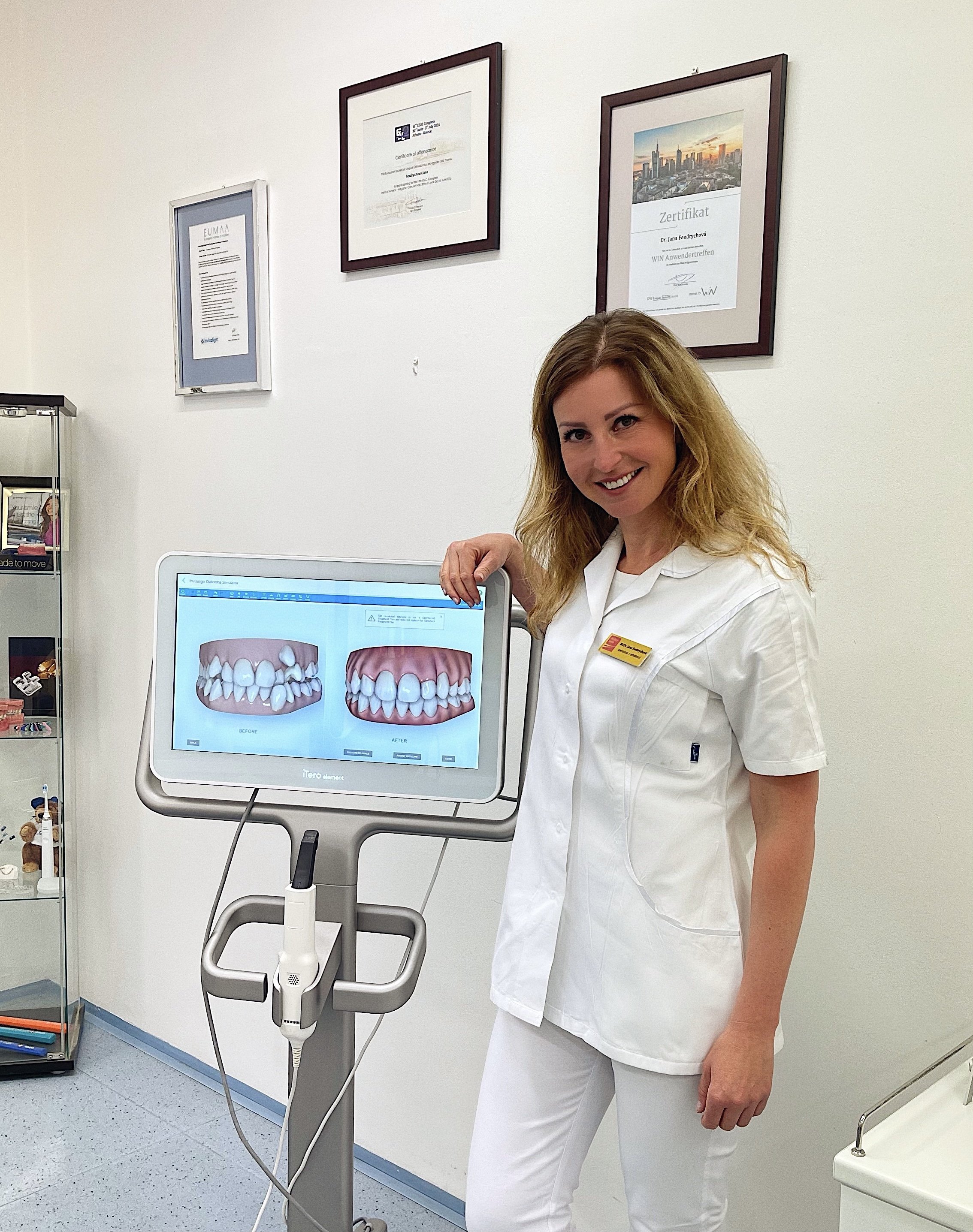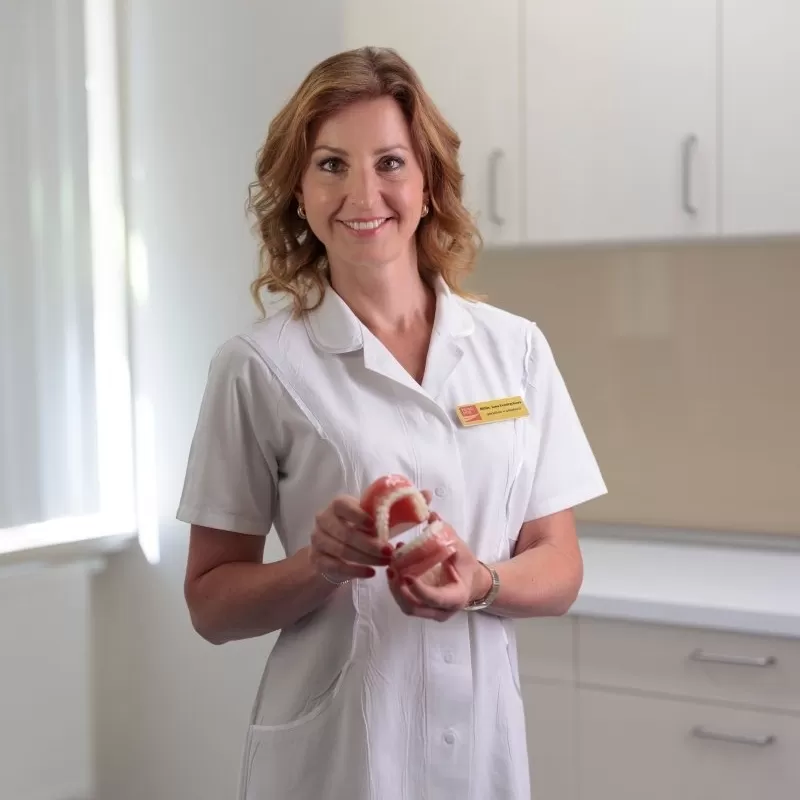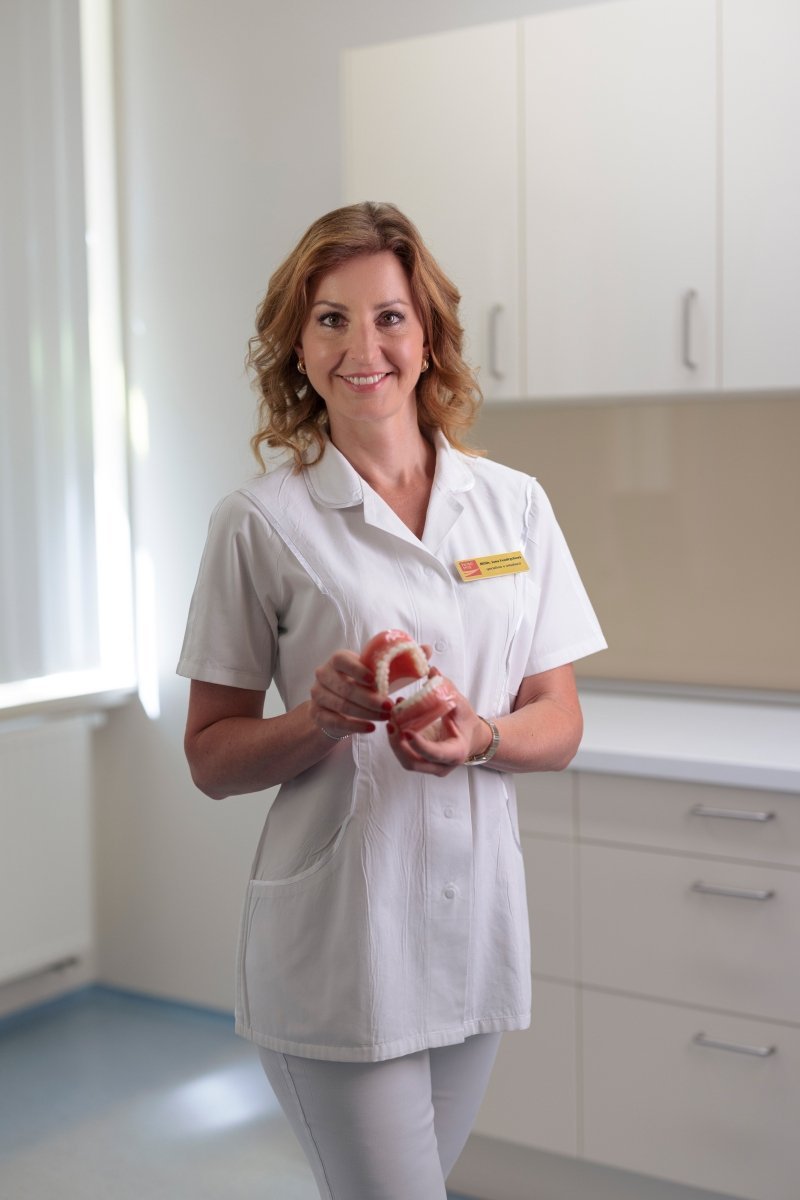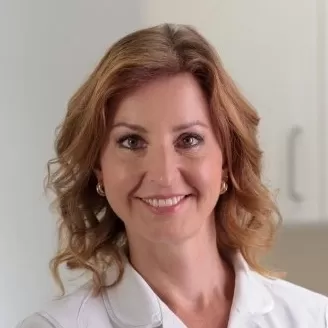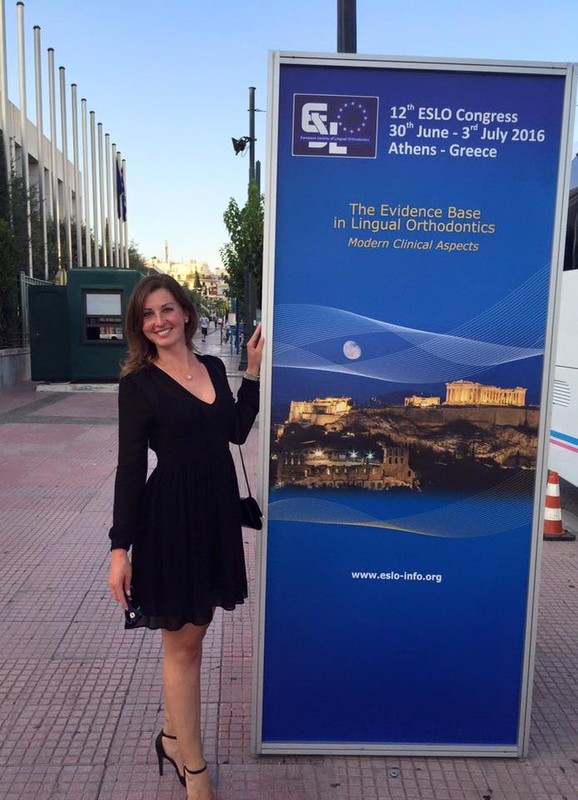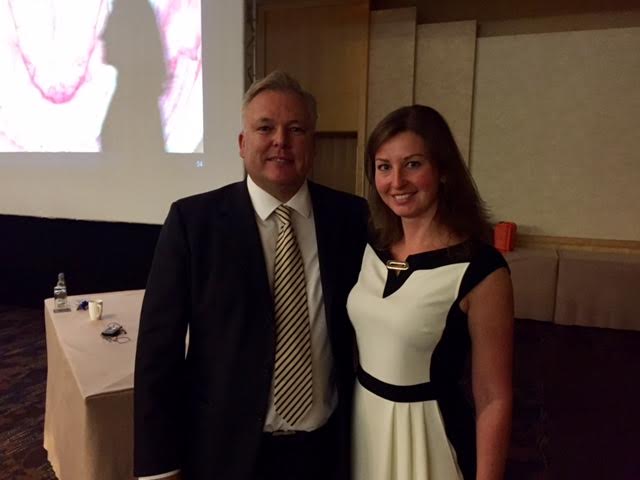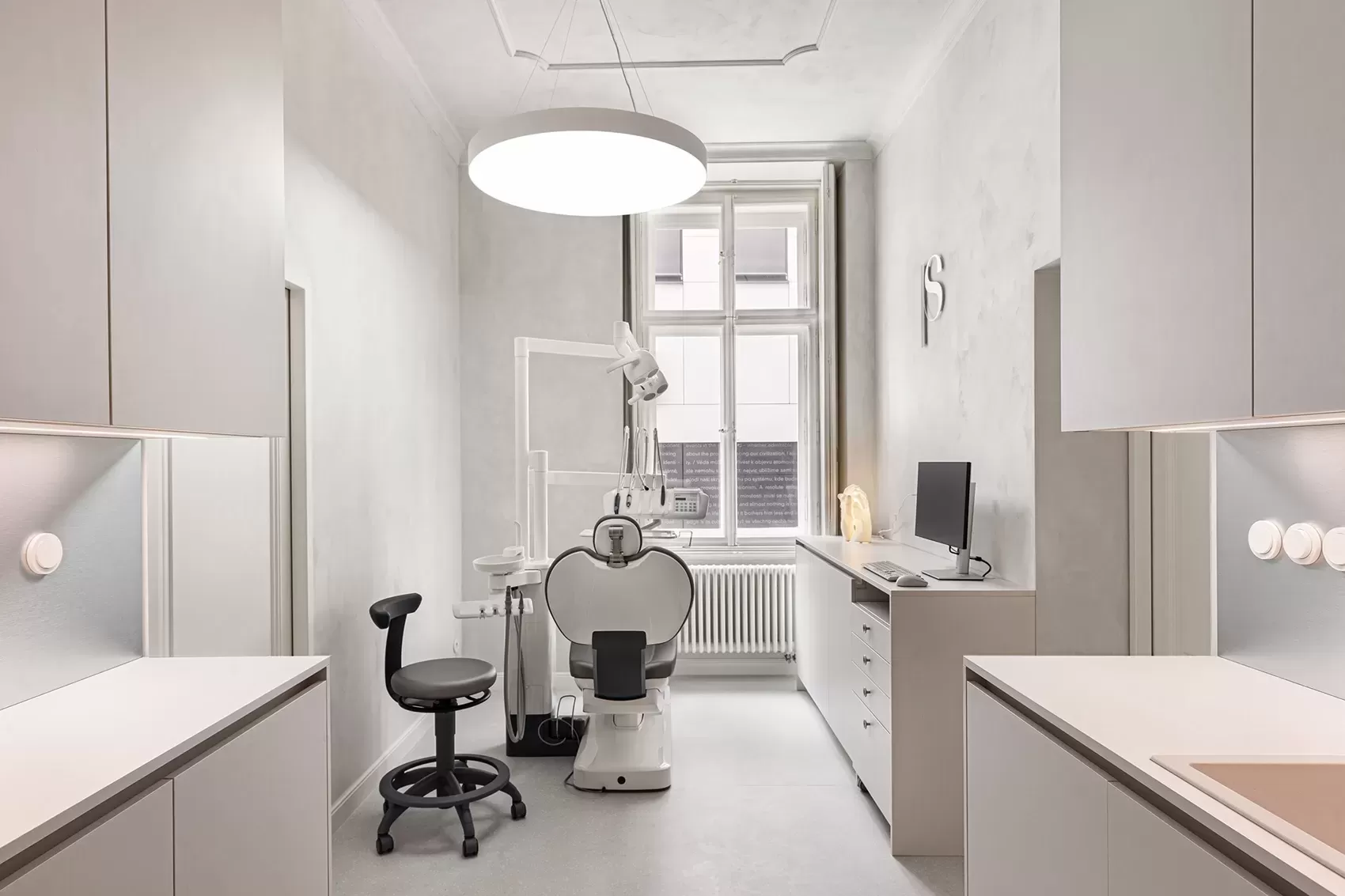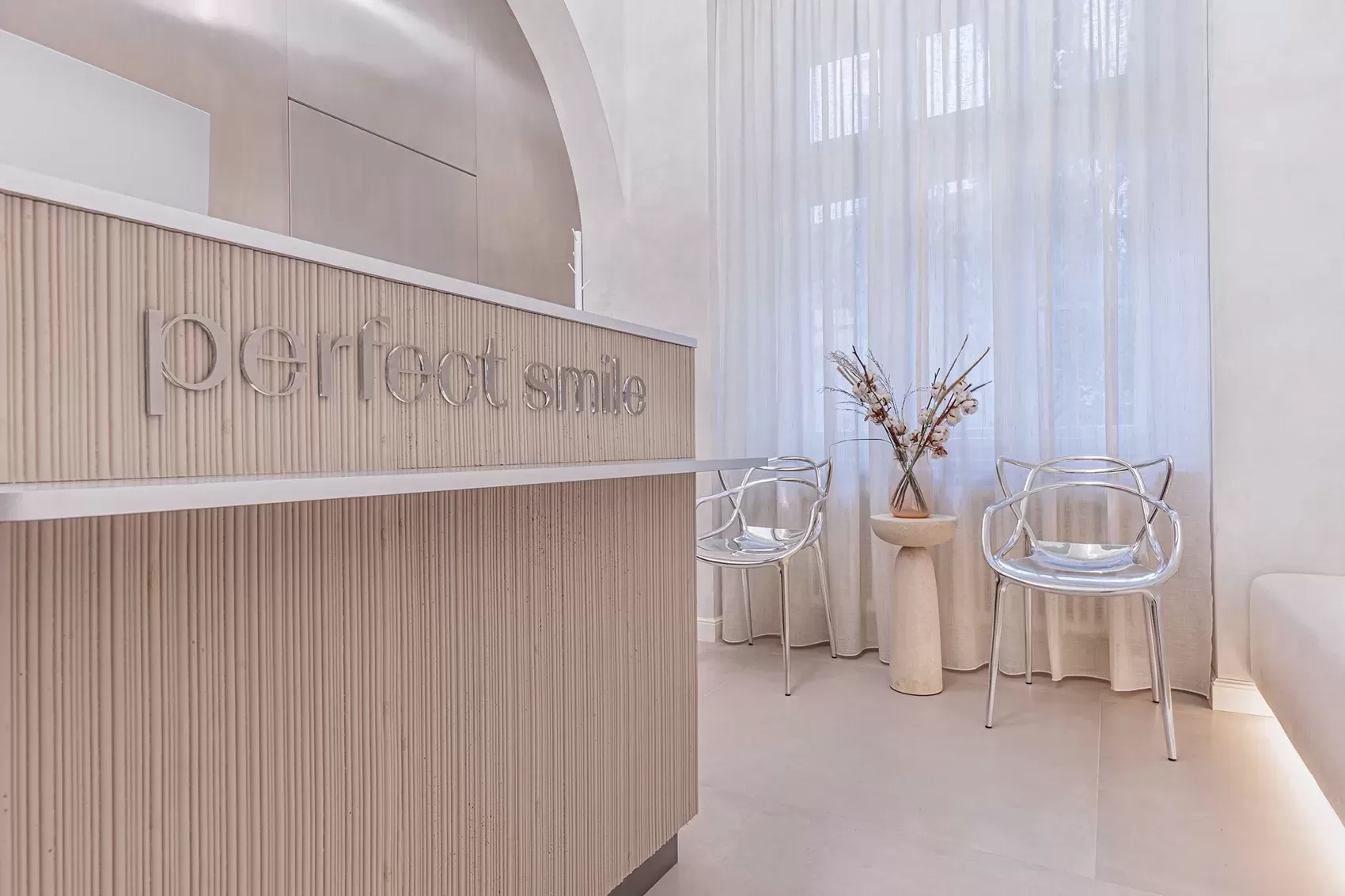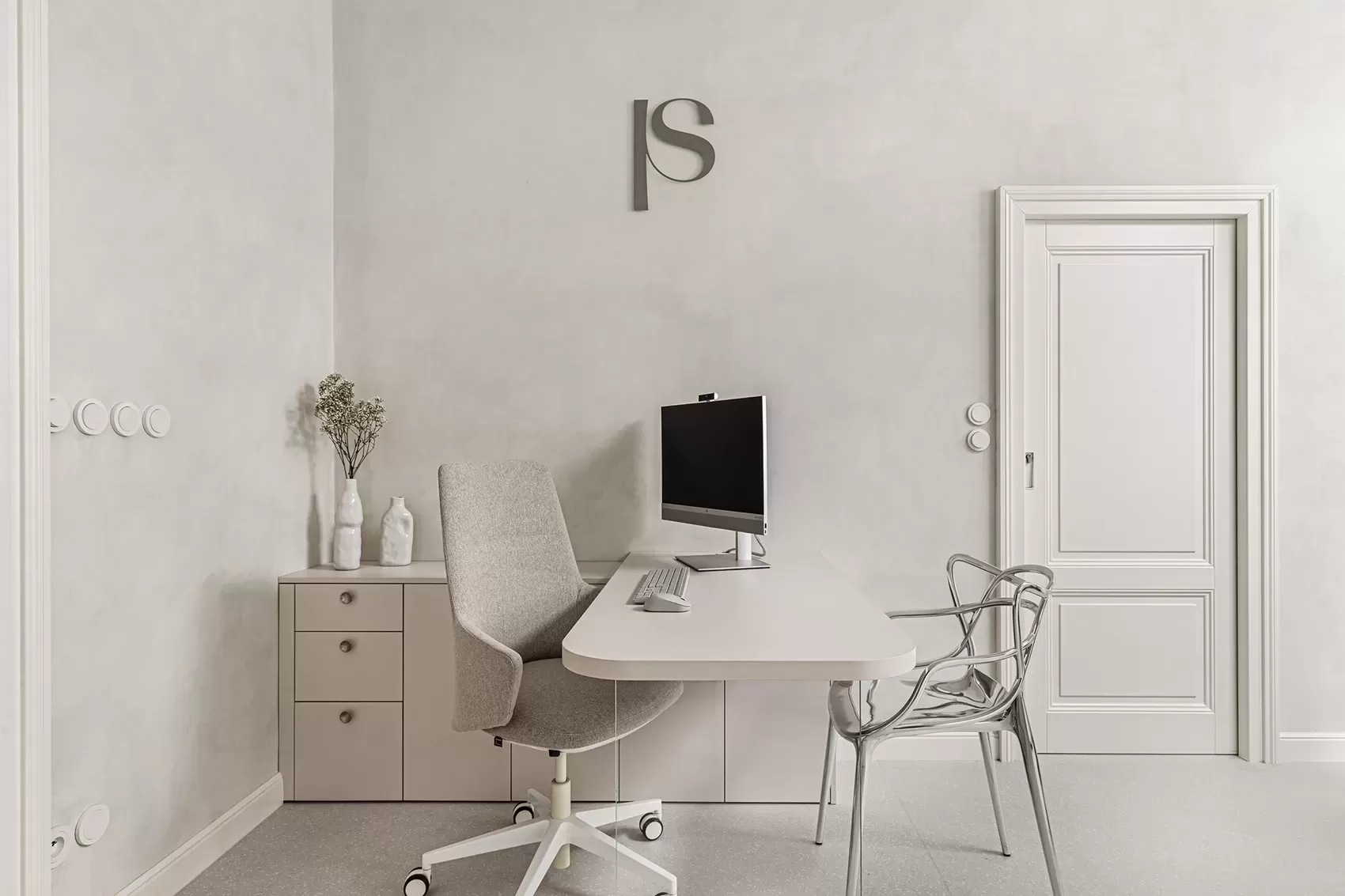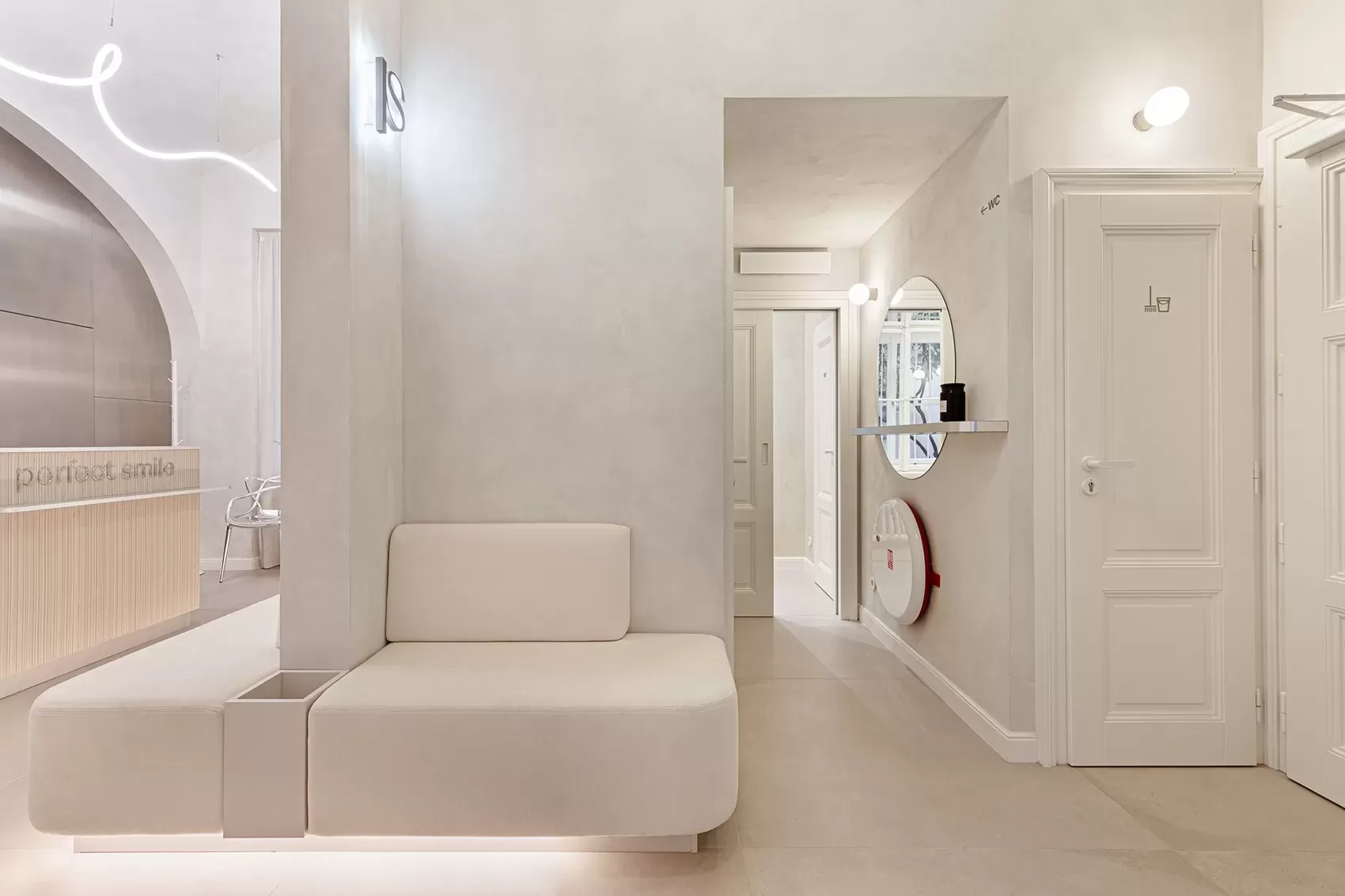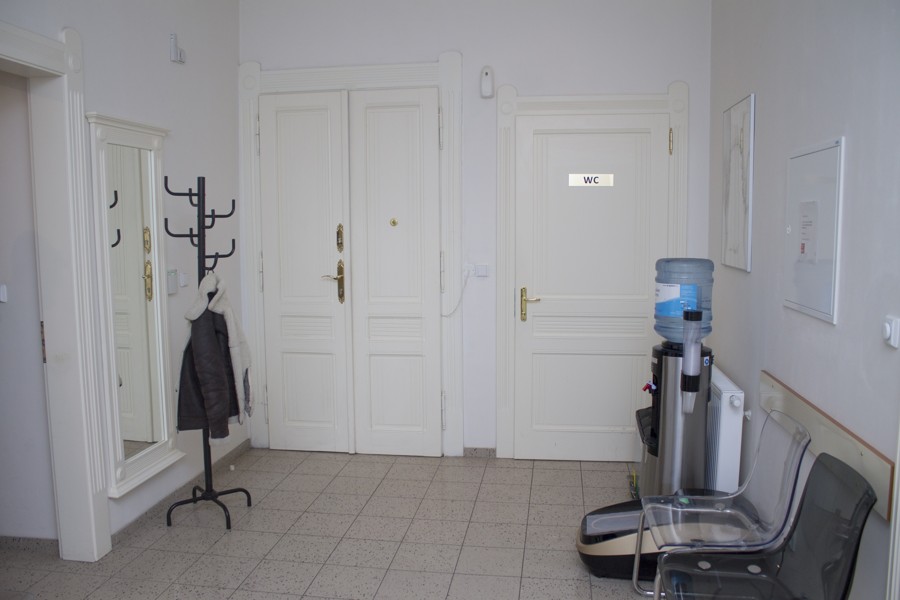Jakmile se rozhodnete pro ortodontickou léčbu v Perfect Smile, MUDr. Jana Fendrychová bude Vaším hlavním lékařem.
Ortodoncie mě zaujala již v průběhu studia Stomatologie na 1. lékařské fakultě Univerzity Karlovy. Ačkoliv řeší především funkční vady skusu, výsledek s sebou přináší také kýžený estetický efekt. Ten vykouzlí úsměv jak pacientovi, tak jeho lékaři. Samotná práce s rovnátky je velice jemná a předpokladem pro úspěšné dosažení výsledku ortodontické léčby jsou zkušenosti, představivost a vědomosti z oboru. Jako u každé jiné práce, která má být provedena perfektně. A jelikož ortodoncie není pouze mojí pracovní činností, ale je především jedním z pilířů mého života, budu se vždy snažit plnit očekávání pacientů díky neustálému vzdělávání, sledováním nejnovějších poznatků, metod, technologií a jejich aplikací v denním provozu kliniky Perfect Smile.
Pojďte ji tedy po profesní stránce poznat lépe v několika otázkách.
Proč jste si zamilovala právě ortodoncii?
- „Je to velmi krásný obor zubního lékařství po mnoha stránkách. Pomocí rovnátek vytváříme pacientům krásné úsměvy ‚pouhým přesným navedením‘ jejich vlastních zubů do pravidelného postavení. Mohou se tak zcela vyhnout invazivnějším zákrokům estetické stomatologie, jako jsou korunky a můstky. Při ošetření v ortodontické ordinaci nejsou potřeba žádné injekce ani nástroje, které v nás všech do určité míry vyvolávají strach. Abych ale byla upřímná, ani ortodontická léčba není zcela bezbolestná.“
Mezi nejčastější otázky pacientů určitě patří, za jak dlouho budou mít perfektní úsměv…
- „Ortodontická léčba vyžaduje ze strany pacienta větší trpělivost než vylepšování úsměvu protetickými pracemi. Zubům je potřeba dát čas, než zaujmou cílové postavení, ale jak se říká, trpělivost růže přináší. Přibližně za 1,5 roku je ve většině případů aktivní léčba u konce a pacienti odchází s perfektním úsměvem. Spokojení, že se do léčby odhodlali jít. Mám za to svou práci opravdu velmi ráda.“
